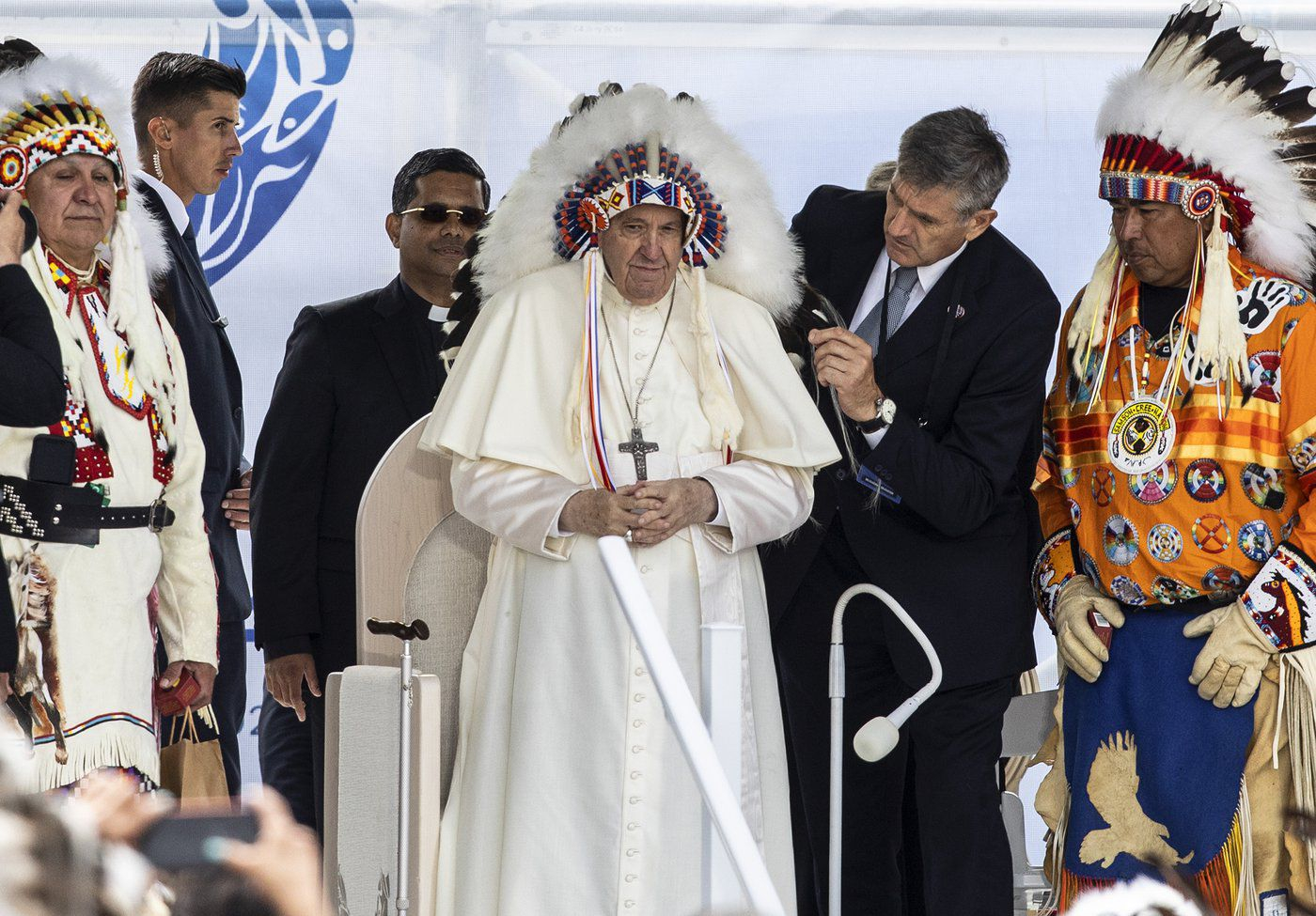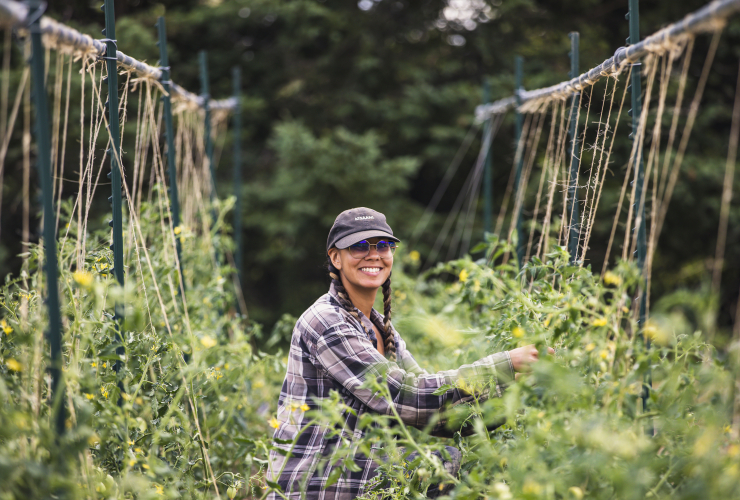As Pope Francis's visit to Canada shifts east, Indigenous leaders say their communities deserve to hear him on Quebec soil beg forgiveness for the sins of the Catholic Church in that province.
An apology from the pope in front of an audience in Quebec would be a meaningful gesture after the pontiff apologized Monday on the grounds of the former Ermineskin Indian Residential School at Maskwacis, Alta., said Mandy Gull-Masty, grand chief of the Cree Nation.
“I think it’s important because we have survivors at every event and we want them to hear these words in person," Gull-Masty said in a recent interview. "So, I think it would be really key to share that and acknowledge that in both parts of his journey here in Canada."
Expectations for the pope's visit, she said, vary from nation to nation in Quebec. Most federally funded residential schools in the province opened in the 1950s, and the last one in shuttered in 1991.
Gull-Masty was part of the Canadian Indigenous delegation that went to the Vatican earlier this year to hear Pope Francis apologize for residential schools and commit to delivering an apology in Canada.
“If you had endured the treatment that many of these survivors have gone and suffered through during their childhood … it’s an important part of their healing process to hear somebody who is representative of those institutions make statements that can offer potentially some type of closure, and for some people, the start of a healing process," Gull-Masty said.
Church leaders in Quebec, however, aren't expecting the pope to deliver an apology in the province.
Quebec Archbishop Cardinal Gérald Cyprien Lacroix said the pope's visit has been divided into three themes: justice, reconciliation and the future. The justice portion of the trip — in Alberta — involved the apology for residential schools. In Quebec, Lacroix said in a recent interview, the pope is expected to talk about reconciliation. The final stop — in Iqaluit — will be about the future, he added.
"Now that we've got the truth out there, and we've expressed the truth, we've recognized what has happened and we assume that, now, how are we going to reconcile and be able to look at each other face to face and walk together?" Lacroix said.
The Cree Nation of Chisasibi, meanwhile, said it won't send an official delegation to the pope's events in Quebec.
Chief Daisy House said in a statement the community would instead attend an annual Fort George residential school gathering as a way to focus on strength and collective healing. "Our hope is for survivors and former students to be in a safe place during this Papal visit, surrounded by family and loved ones, in the comfort of their community," House said.
Earlier this year, the community announced it would search for unmarked graves at the sites of five residential schools that operated beginning in the 1930s on Fort George Island, in northern Quebec.
Those five schools — the first residential schools in Quebec — housed First Nations children from the local Cree community and other nations in Quebec and Ontario. House has called on the Anglican and Catholic churches, which operated residential schools in Fort George until 1975 and 1981, respectively, to hand over any records that would help in the searches.
Delivering those records is an essential next step after the pope's apology, Gull-Masty said. Money from the church, she added, should be used to revive some of the languages and other cultural elements snuffed out by the schools.
The church should also be actively involved in providing support for residential school survivors and the children and grandchildren of survivors. "It's a multi-generational recovery; it’s not a one-step process," Gull-Masty said.
During three days in Quebec City and the surrounding area, Pope Francis is expected to twice use the popemobile to greet people — once after his arrival to the province on Wednesday and again ahead of Thursday's mass at the shrine of Ste-Anne-de-Beaupré.
The public will be able to gather to watch the pope's events live at two sites on the Plains of Abraham, in Quebec City, while Thursday's mass will be broadcast in Montreal-area Cinémas Guzzo locations.
The Assembly of First Nations Québec-Labrador is insisting for an apology in Quebec. Chief Ghislain Picard said that many survivors are travelling from far away to the mass in Ste-Anne-de-Beaupré, northeast of Quebec City, on Thursday, adding that they aren't coming for a celebration.
“Survivors, no matter who and where, are wanting to hear the apology," Picard said. "So, I would say that’s something on the minds of survivors in Quebec City as well."
One Innu elder who attended a residential school during her youth said that accepting the pope's forgiveness might be difficult for many survivors. Jeannette Vollant said in a recent interview she believes other actions from the church need to follow.
"I have compassion for him today … it's a big responsibility," said Vollant, who is in her 70s and from the community of Uashat mak Mani-utenam, in northeastern Quebec. "He must have heard what happened (in residential schools), but there were no actions from the church authorities to stop it."
She attended the former Notre-Dame boarding school during her childhood in the 1950s and will attend the Quebec papal mass, hopeful for a "sincere apology," one that "comes from the heart."
While she didn't experience abuse during her time at residential school, Vollant said she heard stories of what happened to others.
"It's going to take some time because my people need to start a healing process," she said.
This report by The Canadian Press was first published July 26, 2022.
— With files from Frédéric Lacroix-Couture in Montreal.




Comments